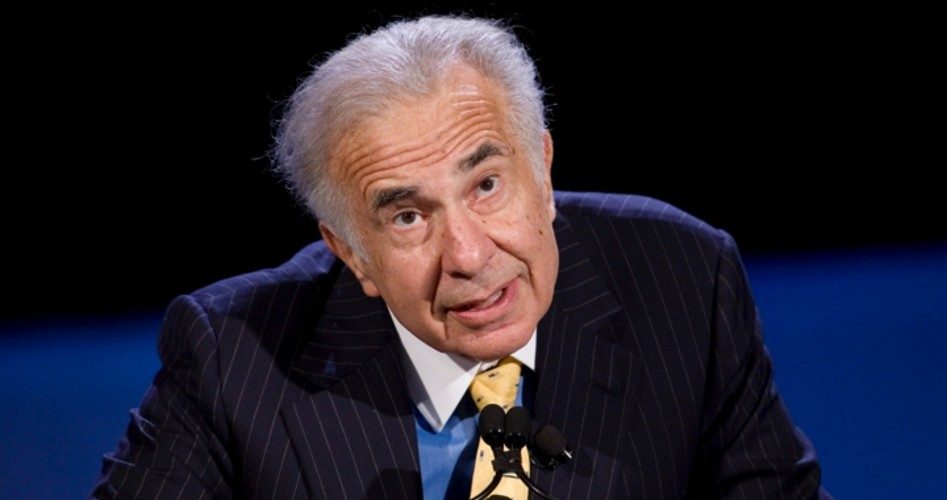
President-elect Donald Trump has named a longtime close friend as his “special advisor” on deregulation: multi-billionaire activist Carl Icahn (shown). In acknowledging the honor, Icahn stated, “It’s time to break free of excessive regulation and let our entrepreneurs do what they do best: create jobs and support communities.”
Icahn started as a stock trader and then moved into a position where he could influence the companies issuing the stock. At one time he held stock in RJR Nabisco, TWA, Texaco, Western Union, Viacom, Revlon, Blockbuster, Time Warner, and Netflix. A billionaire several times over, Icahn would uncover a company that he felt was underperforming for its stockholders, and buy up some of its stock. When he owned enough, he would challenge the board of directors to change direction, often demanding the board fire the company president and hire new blood, sell off parts of the business that were losing money, or buy back the company stock to boost its value. Such a practice is generally referred to as a “hostile takeover.”
In the 1980s he was so feared that when a company learned he was acquiring stock in order to challenge the board, it would offer to buy back his stock at exorbitant prices, just to make him go away. The tactic, later outlawed, was known as “greenmail.”
Two weeks before he was named Trump’s special advisor, Icahn applauded Trump’s nomination of Oklahoma Attorney General Scott Pruitt to head up the EPA. Owners of oil refineries such as Icahn (his are in Kansas and Oklahoma) have long complained about EPA enforcement of ethanol blending requirements that were established under President George W. Bush.
Small refineries didn’t have the facilities to blend ethanol into their gasoline, and so were required to make up the difference by purchasing RINs (Renewable Identification Numbers) from other refineries which could. As the owner of CVR Energy, Icahn estimated that his company would have to spend $250 million buying RINs — a huge drain on the company’s resources. In a television interview with Bloomberg on Wednesday, Icahn made it clear what his first priority would be: “We’re talking about getting rid of this … RIN law and this obligation!” he declared, asserting that the law is unfairly targeting smaller refineries, threatening some of them with bankruptcy.
He asserted: “I’m involved with Donald where he wants me to be. I believe he respects my views and I think he listens to me. What [he] is trying to achieve is to show businesses in a lot of this country [that] they aren’t going to be ruled by absurd regulations [issued] by bureaucrats.”
Icahn was an early supporter of Trump, and their relationship extends back decades to when they ran Trump’s Atlantic City casinos together. When those casinos faced financial trouble, Icahn was sometimes successful in rescuing them before they were forced to declare bankruptcy. Icahn’s wife is on Trump’s transition team.
Retaining his reputation as the “quintessential outsider,” Icahn will no doubt work closely with Pruitt and other agency heads as they begin to fulfill Trump’s campaign promises to lift the heavy hand of government from business across the country. It’s likely that Icahn will start with his own.
2007 photo of Carl Icahn: AP Images
An Ivy League graduate and former investment advisor, Bob is a regular contributor to The New American magazine and blogs frequently at LightFromTheRight.com, primarily on economics and politics. He can be reached at [email protected].



